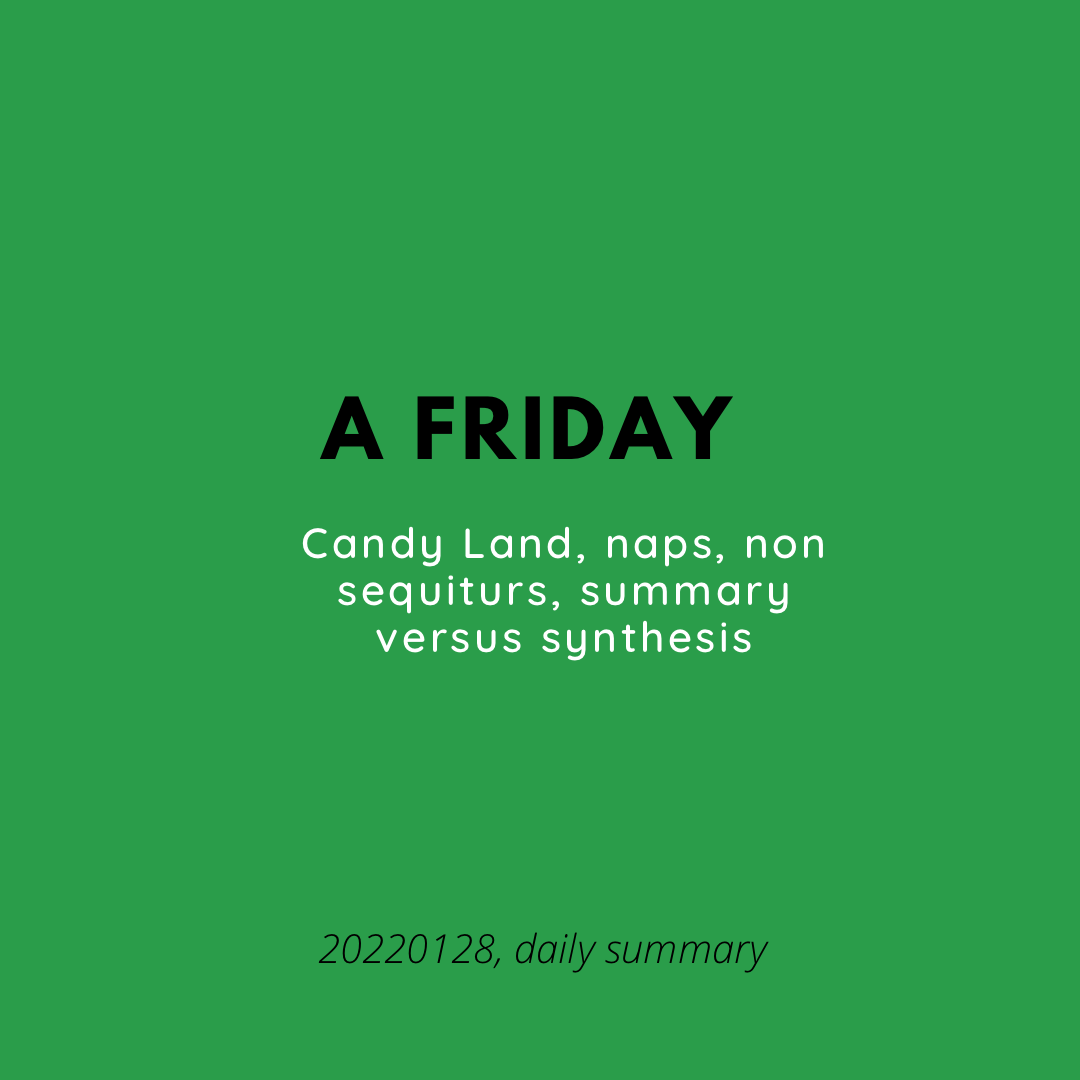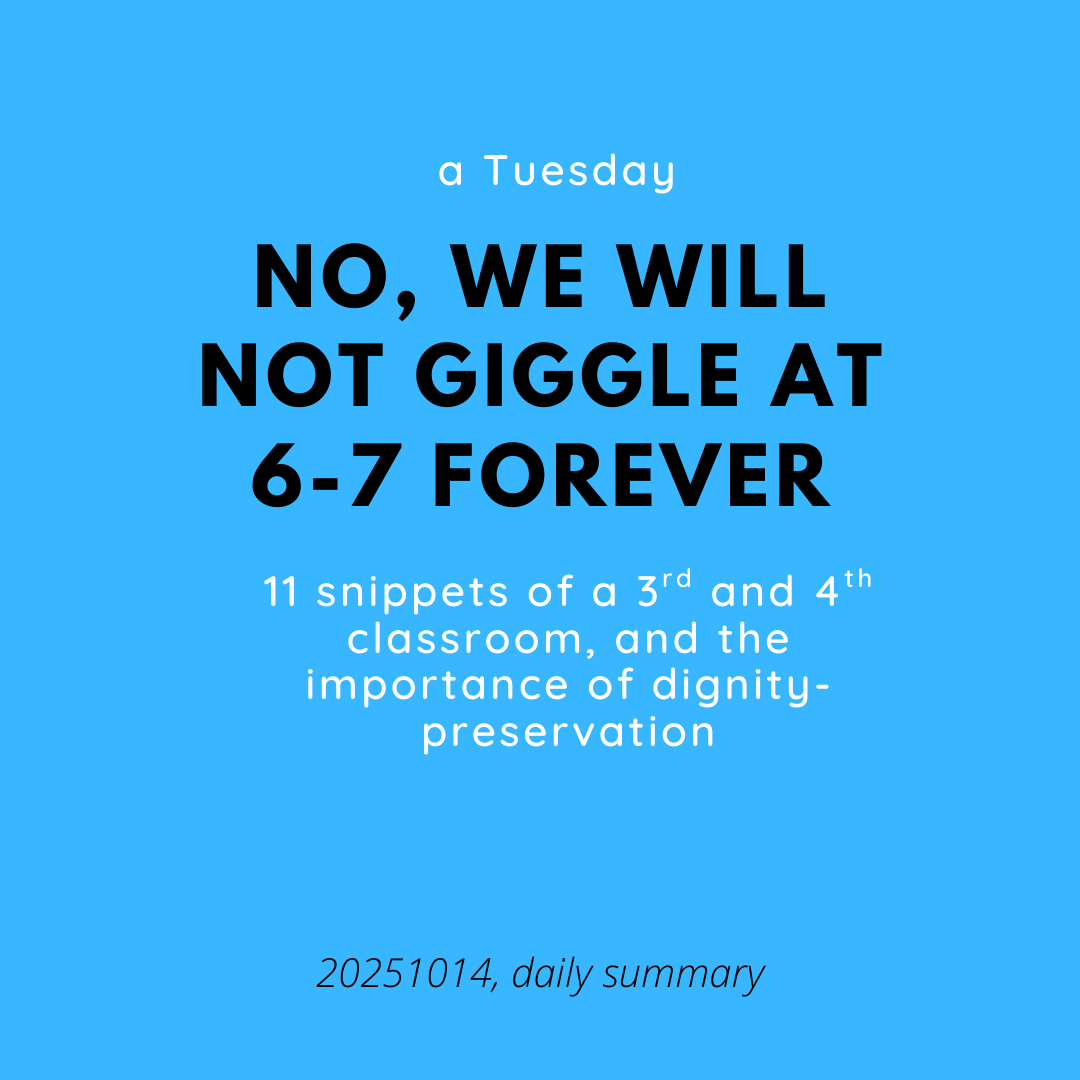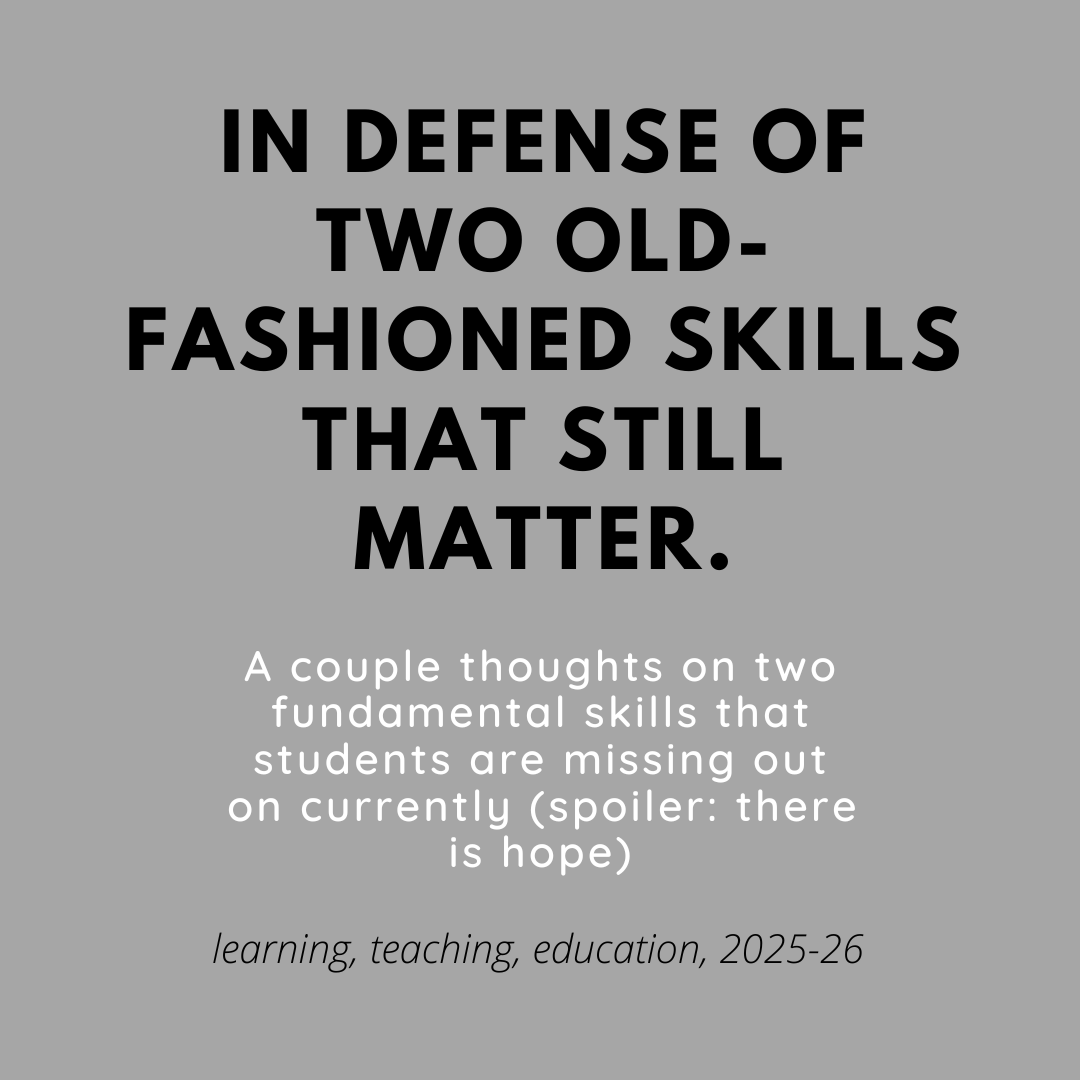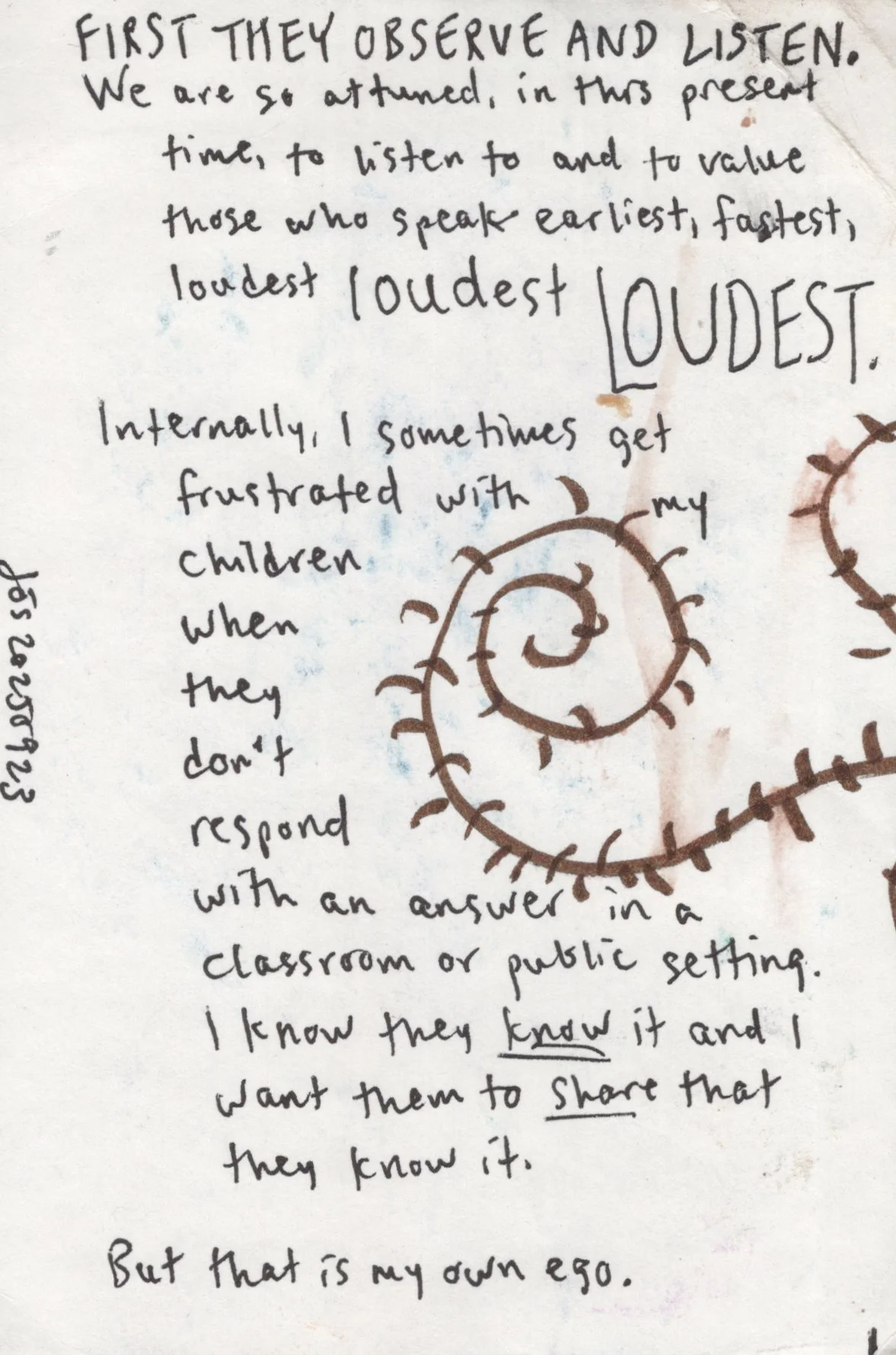A Friday : Candy Land, naps, non sequiturs, summary versus synthesis.
Things we learned, discussed, read, did, and argued about
Games
A five-year old cannot get enough of recently-discovered board game Candy Land. He’s mowing down opponents in the strategy game Mancala, which actually a) requires strategy and tactics and skill and b) goes quickly. I love playing Mancala with him, frustrating though it is to lose to a five-year old.
Candy Land, however, a) is a game of pure luck and b) goes for roughly the length of My Patience Plus Fifteen Minutes Plus a Little More. It goes and goes and goes. And he loves it.
Home
Our two-year old wants almost nothing to do with me when he wakes up during the night. In fact, he’s not very nice to me when he wakes up mid-sleep, every night, and totters into our bedroom and bed. He wants his mum. That’s it.
But during the day, when it’s nap time, he’s very nice. It’s like he’s making up for his nighttime rudeness. Sometimes he’ll come up dragging a blanket, or asking for a special stuffed animal, letting me know that he’s ready. We have our ritual. I hold him, and sing and dance as we pave a path in the hallway and he lays his bouncy Eraserhead curls on my shoulder and gently goes into the good morning. Eventually, I lay him down so I can have both hands free to use in service somewhere else. Like Candy Land, or making another cup of mediocre coffee.
Timeline
10.40 Begin the process. I hold him. He chooses a blanket, stuffed animal, and something else important, like a toy car or piece of scrap flooring.
10.45 His head on my shoulder, singing, dancing, eyes going down.
10.57 Asleep, I’m still holding him for…just one more minute.
10.59 I lay him down.
11.45 He wakes up. But doesn’t want to get up. So I lay with him, silently.
During this time, I often let our five-year old “do schoolwork on the computer.” I’m not sure why I put that in quotes, except that that’s exactly what he says: “Can I do schoolwork on the computer now?”
Sometimes his older siblings grumble that he’s “not really learning anything” from the ABCya or PBS Kids learning platforms. They’re all game- and graphic-based in some form, under the guise of practicing numbers or syllables identifying this animal or that, and there’s a certain amount of truth to the assertion. What is he learning?
But there’s also a great deal of learning, I would argue, that is about the process of learning and the intangible benefits of doing something, rather than the value of the thing itself.
We play catch as a family because yeah, throwing and catching a ball is a good physical skill to learn. But every bit as important, there’s a lot of metaphors and character traits that come into play doing simple activities. Sharing, listening, supporting, throwing at versus throwing to, encouraging, counting…same thing with “doing schoolwork on the computer.”
He’s doing it by himself. He takes a certain amount of pride when I check in and ask him to show me what he’s been learning or doing; his little fingers figuring out how to navigate the mouse and keyboard (and yes, I have him deliberately on a computer rather than tablet). He’s a third child, a middle child. I don’t know what that means experientially; I’m the oldest of seven. But I know it’s important for everyone to learn how to be not only a good leader, but a good follower; how to build a sense of independence and autonomy that reminds the Olders that you do important schoolwork stuff too, and that is something distinct from being lumped in with a Younger bro. It’s something that’s his.
Latin / Reason & Rhetoric
Non sequitur “it does not follow”
We enjoyed a wonderful time coming up with examples. This is one of the all-time great logical fallacies, and I joyfully violate this one regularly.
The non sequitur fallacy is subtle in no way. There’s not really any sort of plausible or sensical connection between a) the premise and b) the conclusion. That’s what makes them so entertaining, and from an argument standpoint, so great because they’re much more blatant and easy to catch than many of the more subtle and nuanced ones.
I had the Olders write out lists of their own sequiturs in five minutes. I’ll include their lists at a later point.
Nature & Outdoors
We talked about the lifespan of trees and how there are giant sequoias that have been growing for 2-3 thousand years. What a divine thought to consider - and a beautiful message of the importance in caring for Earth.
Thinking & Thoughts : Summary versus Synthesis
Summary is easy. It takes discipline and practice, but almost everyone can learn how to summarize something; how to identify the important parts of something and condense those parts into a coherent order and presentation. It’s important to learn how to do quickly, competently, and frequently.
Synthesis is hard. It takes discipline and practice and imagination and creativity and intellectual rigor and a willingness to dig deep, dig wide, and then form an original idea or insight from your understanding and study of different ideas.
It’s hard. Most people aren’t very good at it.
But it’s super important, and one of the best academic skills our children can develop, as far as I’m concerned. The roots of Synthesis are the same as the roots of creating original art:
You take disparate ideas or elements that are familiar. You put those familiar ideas or elements together in a way that hasn’t been done before in order to offer a fresh insight, a new perspective, an original creation that you have fused together from the ordinary and the familiar.
More books
To the library, onward! We never grow weary of public libraries. Thank you.
Other
I won some ice cream in a drawing a few months ago. So we went by and picked it up. And ate it outside. The sun shined and our hearts thumped extra. Maybe the sugar.










